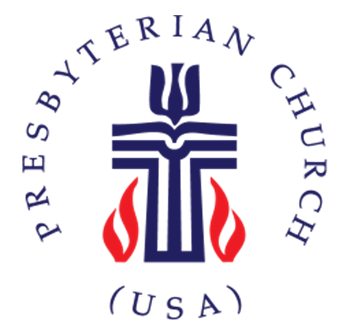A Brief History of First Presbyterian Church of Oak Ridge
First Presbyterian Church of Oak Ridge, which is 80 years old, is known for its support of civil rights; ministry to food-insecure folks and nonviolent, formerly addicted prisoners; clean-water and medical mission trips to Belize, Ethiopia, Ghana, and Pakistan, and excellent sermons and music. Our congregation is creative—we renovated buildings; established two community gardens and a flower garden; stitched together banners, quilts, shawls and masks; initiated study groups at Roane State Community College; fed the food-insecure at the college and in the community, encouraged musical expression at coffee house events for youth, and wrote, arranged, and performed original songs, anthems, and even a rock opera! FPCOR is recognized by Presbyterian Church (U.S.A.) as an Earth Care Congregation and a Hunger Action Congregation, as stated in the pastor’s video on the FPCOR website (www.fpcor.org).
We have had many amazing church members over the years. An Oak Ridge National Laboratory corporate fellow and several directors of ORNL divisions. A founder and long-time president of Aid to Distressed Families of Appalachian Counties, housed at FPCOR. An African American chemist at Y-12 who was one of our nation’s longest-living heart transplant recipients. A builder of our town’s first church pipe organ who also helped pioneer at ORNL molten-salt nuclear reactor technology, which remains of world interest because it could help stem devastating climate change; this technology will be demonstrated at the first Kairos Power reactor, which will be built in Oak Ridge in 2026. Prominent leaders in city government and of nonprofit service organizations. A highly honored woman high school physics teacher who was invited by President Obama to bring her students and their project to the first-ever White House Science Fair. Two ORNL colleagues who later became fellow executives at Union Carbide and Cabot corporations; one later won a National Medal of Technology and Innovation (from President Clinton) and another led a national panel on the importance of technological innovations in fostering economic growth. One couple donated land that enabled the construction of the Oak Ridge Branch Campus of Roane State Community College.
What follows is a brief history of the church.
On June 18, 1946, Bob Thomas became FPCOR’s first installed pastor. Shortly thereafter, church services were shifted to Pine Valley School’s gymnasium. The choir sat in the bleachers and the minister stood under the basketball goal; some called the hoop overhead his halo.
Since 1950 three facilities—the Sanctuary, Education, and Activities buildings—were constructed and renovated on a seven-acre lot purchased by the presbytery from the Atomic Energy Commission. In the 1950s the congregation swelled to 1,000 members.
According to the first FPCOR historian, the church had a reputation for taking “bold and principled stands,” especially on local issues such as racial discrimination and the lack of rehabilitation for prisoners. In the 1950s, most members favored racial integration, but after three African Americans joined FPCOR, 17 families departed and formed a more conservative Presbyterian church in Oak Ridge—an event dubbed “a churchquake.”
Sam Howie, installed as pastor in May 1957, urged church members and other customers of local businesses to persuade owners that black and white folks have the same rights and should all be served. Howie was also active in early efforts to provide better housing for black people in Oak Ridge.
On May 14, 1964, Alex Stuart, then vice moderator of the regional Union Presbytery and FPCOR co-pastor since 1960, suffered a broken arm in Camden, Ala., when he was attacked by a white man who saw Stuart accompanying a black minister from Knoxville College on a presbytery visit to black churches. Stuart told his story at the General Assembly meeting that year.
In the 1950s through the mid-60s, FPCOR had the only pipe organ in town. An ORNL engineer and FPCOR member led a church team in rebuilding a donated organ at a downtown warehouse, electrifying it with 15 miles of wire and adding new pipes. He also built the church’s present chandeliers from scrap iron, fly screens, aluminum pie tins and plastic.
In 1954, the Education Building was added for Sunday school classes. In more recent years, it has been rented out to day care centers and early childhood education programs (e.g., Jack and Jill Day Care, Montessori, and Early Head Start of Anderson County).
On August 25, 1968, ground was broken for the Activities Building, which housed the church offices for 53 years until they were moved back to the Sanctuary building in August 2023. Many community groups have used the Activities Building for meetings. Aid to Distressed Families of Appalachian Counties, which FPCOR helped establish in 1987, has rent-free offices in this building, as does the Tennessee Citizens for Wilderness Planning.
In the late 1960s church members started and staffed an ecumenical vacation church school in Scarboro, where many black Oak Ridgers were living at the time. In 1971 church members helped start the Prisoner’s Aid Society of Tennessee (PAST); a prison ministry continues today for nonviolent felons recovering from drug addiction at the Morgan County Residential Recovery Court (MCRRC).
From 1971 to 1975, FPCOR sponsored the Coffeehouse for up to 300 teens every Friday night, providing food, drinks, entertainment, and adult chaperone “listening” services. In 2012, the Coffeehouse was resurrected, providing a ministry to college students on break. The Coffeehouse raised hundreds of dollars for the Free Medical Clinic of Oak Ridge and won recognition for FPCOR (New Vision banners) from the Presbytery of East Tennessee.
In 1973, Bob Crothers from the United Presbyterian Church’s New York City headquarters became interim pastor, and Jim Allen, an engineering student, began his 45-year service as organist. After he died in 2016, Peggy Hinkle was hired as pianist and organist.
In December 1977, David Horne was hired, and he served for 14 years. Vicki Fogel Mykles, assistant minister, was the third female pastor to be ordained in Oak Ridge. In May 1978, Arlene Crawford succeeded Gordon Warner as music director, a position she held for 31 years. During that time the children’s and youth choirs—Cherub, Carol, and Westminster choirs—performed 20 cantatas. One cantata was an original “rock opera” called Deborah, which was written by two church members and performed in 1994 by the adult Chancel Choir and the three children’s and youth choirs; the performance raised enough money to fund a youth mission trip to a Native American reservation in Arizona. The Chancel Choir and volunteer singers from other churches together sang numerous major sacred works by well-known composers, such as Brahms, Handel, and Rutter.
In May 1980, the church sponsored its first refugee family under the auspices of Church World Services. A family of 11 came here from South Vietnam; all nine children obtained college educations in other parts of the nation. FPCOR also sponsored Polish, Ethiopian, Kurdish and Turkish-Georgian refugees.
In 1983, the church supported the medical mission in Sudan of a surgeon who also composed and arranged hymns performed by the choir. In 1984, FPCOR and other churches founded the Ecumenical Storehouse, which accepts, stores, and distributes furniture and other household items to people in need, including those whose houses have been destroyed by fire.
In 1993-94, the Sanctuary building was renovated for the first time. In 1998-99, the Education and Activities buildings were renovated, and a bell tower and memorial garden were added under the leadership of the Rev. Dwyn Mounger, who was hired in 1995 and revived the prison ministry. The city awarded the church its Environmental Quality Award.
In 2003, Kerra Becker English became the FPCOR pastor, and in 2009, Anna Thomas was hired as the director of music. For more than a decade this century, the congregation was blessed to have two different parish nurses offer services such as medical advice, vaccinations, and speakers on health issues.
In 2004, a lecture series on science and religion was launched as a tribute to the late Jack Davidson, a beloved church member interested in the subject; one lecturer was a winner of the Templeton Prize; another became the first female archbishop of the Church of Sweden; a third was the religion reporter for “USA Today,” and the most famous, author and climate-change activist Bill McKibben, attracted 700 people in 2014 to hear him in Oak Ridge High School. In 2019 FPCOR and the First United Methodist Church of Oak Ridge inaugurated a joint Science & Theology Lecture Series.
In 2004, church members began a series of mission trips to Belize, primarily to install Living Waters for the World systems (based on a concept of a FPCOR member) to produce clean water cheaply for schools and a nursing home. Medical and educational services were also provided. Mission trips from Oak Ridge to Belize stopped in 2020 when the Covid-19 pandemic started.
In August 2012, Sharon Youngs was called as the current FPCOR pastor. Under her leadership, the FPCOR fellowship hall and sanctuary were renovated, the MCRRC prison ministry was launched, efforts to tutor and provide food and school supplies to food-insecure students were being supported, and a free monthly meal, called the Welcome Table ministry (which also provides free takeout meals and groceries), was initiated and continues to serve food-insecure residents of the community. Also, FPCOR accepted the responsibility of supplying and supporting a food pantry for the 30% of students at the Oak Ridge Branch Campus of Roane State Community College who are food insecure.
On June 7, 2015, FPCOR celebrated its 70th anniversary with a special worship service and catered dinner at which former ministers and members were welcomed. Activities leading up to the celebration included updating the church history on the website (fpcor.org), recording church members’ stories, stitching a banner, writing text for a hymn, collecting coins for missions and renovating the Sanctuary Building’s fellowship hall.
In early 2020 during the lockdown, the pastor broadcast the worship services nationwide over Facebook Live using her smartphone on a tripod. In late 2020 and 2021, an audio-visual system was installed in the sanctuary, enabling attendees to see photos, announcements, hymn and choir anthem verses, and other readings on monitors. The services can still be viewed virtually through Facebook Live and the church’s YouTube channel. One Sunday school class called “Let’s Talk about It” recruited out-of-state speakers to address the attendees virtually via Zoom on environmental and social justice issues. Many of the talks on topics related to the activities of the Presbyterian Church (U.S.A.) were covered by articles in The Banner, the church’s monthly newsletter, for which Sharon wrote a popular pastor’s column and articles on upcoming events.
Sharon’s innovations included a summer sermon series and Holy Humor Sunday after Easter for many years. She led numerous Bible and book studies. Two adult classes on Bible readings and book topics flourished for years: “Early Birds” and “Rise ‘n’ Shine.” Unfortunately, attendance by children and youth to Sunday school classes declined greatly after the pandemic started in 2020.
In 2023, a new website went live with a video featuring Sharon. Under her leadership works of art by congregants were exhibited after a worship service. The church offices that were located on the Activities Building’s second floor were moved to the Sanctuary building. She spearheaded the creation of a labyrinth on the church grounds next to the memorial garden using 100-year-old handmade bricks from the property of the Allardt home she grew up in Fentress County. Members of the congregation raised $11,320, exceeding Session’s goal of raising $5,000, to help the Presbytery of East Tennessee meet its goal of $25,000 to relieve $2.5 million in debilitating medical debt in the region. The Session also approved the goal of raising funds from grants and the congregation to install solar panels on the roofs of the Sanctuary and Education buildings to reduce the church’s use of electricity supplied by fossil fuel combustion.
Under Sharon’s almost 12 years of stellar leadership, we felt loved and blessed with a spirit of peace and unity despite the diversity in our politics and faith journeys.



